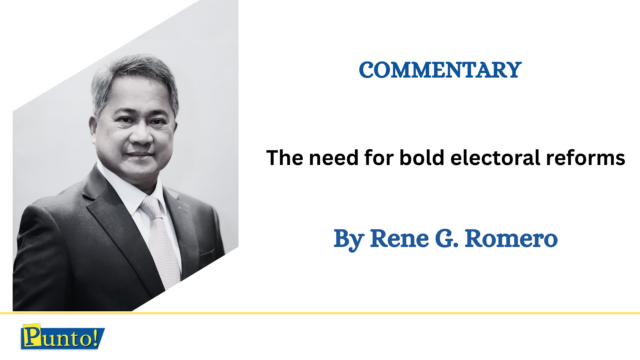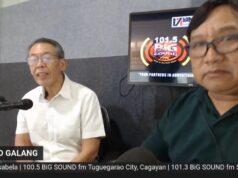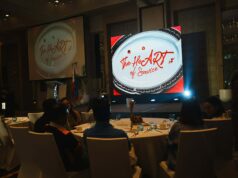IT IS deeply disheartening to witness that, even in this modern era, the conduct of elections in the Philippines and the maturity of many segments of our electorate remain far from ideal.
Upon closer reflection, it becomes increasingly clear that the root cause of our country’s persistent poverty and underdevelopment lies in the very foundation of our democratic process: a flawed electoral system, an often uneducated and easily swayed electorate, and outdated, ineffective regulations administered by the Commission on Elections.
Our elections have become too much about politics, political survival, political dynasty, and political gain rather than public service, competence, and genuine nation-building. The focus is no longer on the best interest of the people, but on how candidates can win at all costs, maintain their grip on power, and recover the massive expenses they incur during their campaign.
This has led to a deeply transactional political culture where public office is treated as a personal investment, rather than a public trust. The ultimate goal for many politicians is not to serve, but to enrich themselves and perpetuate their influence by passing positions to family members or political allies. This is the sad reality that has plagued our democratic system and continues to weaken our institutions.
While we often blame politicians for bad governance and corruption, the deeper truth is that this vicious cycle begins during elections when unqualified, opportunistic candidates with no clear vision or genuine agenda for development are propelled into power through vote-buying, manipulation, and personality-driven campaigns. This system is fueled by the desperation of an impoverished electorate and the absence of meaningful political education.
The Comelc, as the constitutional body mandated to uphold the integrity of our elections, must also be held accountable. Over the years, it has largely failed in two critical areas: (1) educating the Filipino electorate on the importance of responsible and values-based voting, and (2) crafting and enforcing electoral policies that promote fair, clean, and principled elections. If our election rules remain weak, outdated, and loosely implemented, the country will continue to suffer from leadership failures, poor public service delivery, and the misuse of public funds.
Another area of concern that urgently needs review is the constitutional qualifications of candidates for public office. These minimum requirements must not be limited to age, literacy, and residency. They should be aligned with the nature and demands of the positions being sought. If one is running for Congress or the Senate, he or she must possess a strong background in policy, lawmaking, and public discourse. If one is vying for an executive position such as governor or mayor, there must be basic qualifications in governance, financial management, and local development.
Public office is not an entitlement nor a training ground it is a sacred mandate that must be earned through preparation, competence, and moral integrity. In contrast, countries such as our neighbors have adopted more modern and cost-efficient election models. Their campaigns are primarily conducted through regulated media platforms—television, radio, and social media with minimal visual clutter from posters, tarpaulins, and streamers. Their ballots are small, simple, and secure. Their political culture discourages wasteful spending, vote buying, and personality-based campaigns. The Philippines can and must learn from these best practices.
We cannot ignore the fact that elections in the Philippines are excessively expensive. Candidates spend millions and millions, not just to promote themselves, but often to “buy loyalty” from local leaders and distribute favors to voters. This only deepens the cycle of poverty and governance decay. Once in office, elected officials tend to prioritize personal return on investment, leading to patronage politics, corruption, and neglect of long-term development goals. Comelec should be bold, visionary, and unafraid to craft and implement effective and efficient rules. The time has come to implement deep, systemic reforms that will: Minimize campaign expenses and strictly regulate campaign materials; Limit campaign periods and impose spending ceilings; Enforce stricter qualifications and vetting procedures for candidates; Promote issue-based platforms and public debates; Empower voters through continuous and institutionalized civic education programs; Recommend to Congress the amendment of constitutional provisions on candidate qualifications and political party reform.
The quality of our national leadership and by extension, the strength of our economy and government institutions starts with the electoral process. When we elect competent, honest, and visionary leaders, the economy can flourish. When the economy is strong, social services improve, jobs are created, and every Filipino can live a life of dignity and security. Let us remember: a prosperous and just Philippines begins with a credible, principled, and transformative electoral system. The future of our nation depends on how boldly and effectively Comelec can rise to the challenge of reform so that the electorate will choose the best leaders of government who will bring about a better quality of life for all Filipinos.
(Business leader and advocate of good governance, Rene G. Romero is the current chairman of the board of the Pampanga Chamber of Commerce and Industry)





